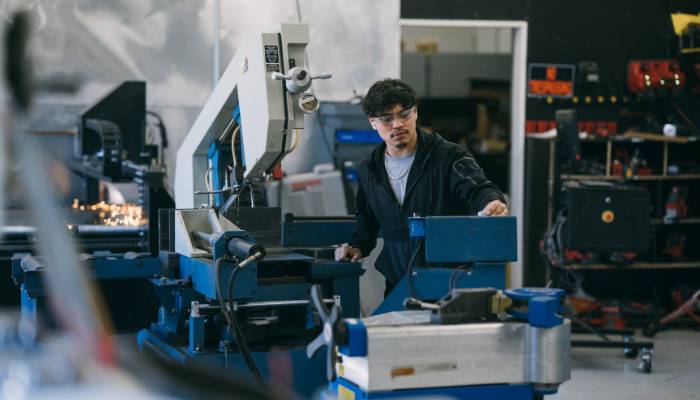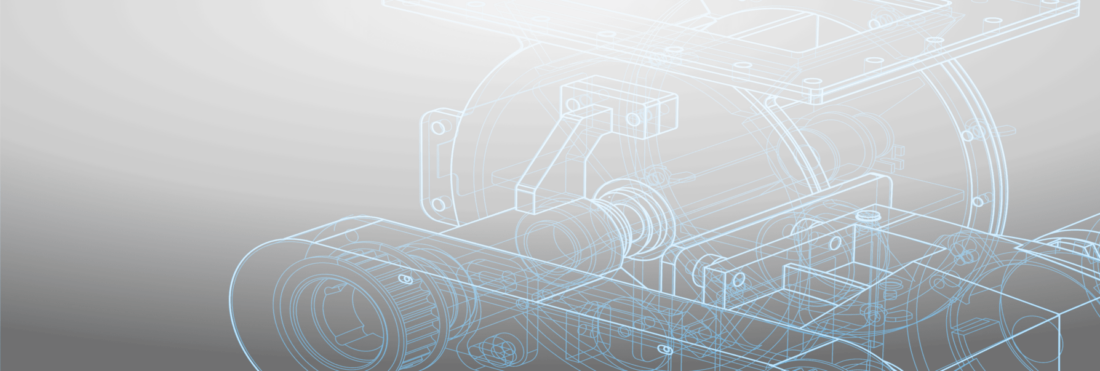
One of the biggest trends in the manufacturing industry over the last few years is the continued growth of custom manufacturing. More and more customers want personalized or customized products, meaning more manufacturers are shifting their manufacturing towards an ETO, or Engineer-to-Order, manufacturing production model.
Luckily for manufacturers, ERPs are keeping step, or even driving this change, and letting manufacturers handle the complexities that come with ETO manufacturing. ERPs that are built with the unique needs and demands of custom manufacturers simplify the intricacies and complex nature of ETO manufacturing.
What is ETO manufacturing?
ETO stands for Engineer-to-Order and it is a type of custom manufacturing in which a shop manufactures an item to the specific requirements of a customer. ETO manufacturing is custom manufacturing in its purest form, in the sense that the process is complex, and the product is truly custom—as it is designed and manufactured exactly to a customer’s specifications.
ETO manufacturing is rewarding—it can be immensely satisfying seeing a brand new custom product that you designed from start to finish roll off of the production line. But it can also be challenging as building a new product from the ground up isn’t easy. Creating an accurate quote or estimate for something that you haven’t built before and that has no fixed design can be near impossible, and the design process itself, which requires intense collaboration and coordination both within your shop, as well as with the customer, can be arduous to manage.
As the name implies, the engineering department is highly involved in designing and building a product in an ETO environment. Unlike in MTO (Make-to-Order) production environments where a standard product is manufactured after a customer places an order, or even in CTO (Configure-to-Order) manufacturing, where a standardized product has variables, ETO manufacturing requires the engineer to be involved throughout the entire process, but especially in the quoting and design phase, as the engineering department is tasked with designing and creating the product to the specifications of the customer.
In ETO manufacturing, engineers do not know the final specs or the materials that will be used, and the whole process is a much more creative process, which requires a closer relationship with clients, ultimately leading to a product that is unique. An ETO product requires a high-level of communication between the engineering department and the customer, with specs passed back and forth between the two, to ensure the product meets customer approval. And even after a product is designed, more changes can be expected as the product is built and tested, and a finalized product is approved by everyone involved.
The complex nature of ETO manufacturing
ETO manufacturing is highly complex and intricate, as not only does your shop have to continuously manage the communication and interaction between your engineering department and the customer, but it also makes many of the manufacturing processes in your shop more complicated.
Managing the sales process, quoting, estimating and job costing are all difficult when you are dealing with a product that hasn’t been built before. Ordering and procuring raw goods and parts, especially long-lead items is also difficult and requires a high level of collaboration between departments. Long lead items need to be ordered early in the design phase to ensure that they are on-hand for production.
How ERPs help ETO Manufacturers
ERPs can help manage the ETO manufacturing process, and give ETO manufacturers a competitive edge as their shops will run more smoothly, with fewer delays and problems.
One of the biggest benefits an ERP brings to the table is that it connects your entire shop, allowing for better communication and collaboration, meaning you can better facilitate the high-level of communication and teamwork that is required in the ETO manufacturing process.
Custom ETO manufacturers need an ERP system that is built from the understanding that ETO manufacturing requires greater coordination between product development, estimation, production planning, and sales. An ERP gives a manufacturer an all-in-one-place to store and manage the complete range of information it needs for an ETO job. Manufacturers can view details of open orders, prices, and preferred vendors, and can see the impact of their choices on production, finance, and procurement.
Building custom products means that no job is entirely similar to any job previously done—each job requires new planning and new specs. Furthermore, customers increasingly demand changes on the fly, meaning that each custom project needs to be planned and meticulously mapped out, yet still must have flexibility built into it to adapt to changes. Custom manufacturers truly need a connected system that shares a ‘knowledge base’ across your team, allowing for greater collaboration, shop-wide planning, as well as the flexibility required in a custom manufacturing environment.
With the level of collaboration an ERP provides, difficult tasks, like ordering parts and raw goods on time, are easier, as an ERP creates a deeper level of connection between departments and can easily let the engineering department interact, communicate, and share information with purchasers and production managers. Everyone can get the information they need to do their jobs effectively—for example, including knowing what long-lead items are needed, so that they can be ordered early on during the design phase, which will ensure the items arrive in time.
Quoting and Estimating
ERPs can also help ETO companies create better quotes, and better understand job costs. Instead of quotes and estimates being educated guesses at best, with the data available from an ERP you can create a more accurate quote. Although each ETO product is unique, an ERP contains a stockpile of historical data from past jobs and products that manufacturers can access and analyze to help ETO manufacturers create better quotes.
Project Management
ERPs allow custom manufacturers to effectively manage all milestones that need to be completed to get a job out the door on time. Milestone management provides a high-level representation of all the activities that need to be completed in order to deliver an ETO job. At every step, you’ll know what task needs to be done and when, the progression of that task, and the exact stage you are at with any given job you have in your shop—all in real-time. Having an ERP means that you will always have complete visibility over your entire shop, allowing you to better manage and oversee all of your shop’s jobs.
CAD-ERP integration
On an ETO job, a lot of engineering time can be eaten up by transferring the Bill of Materials, or BOM, out of your CAD system. A BOM is the comprehensive list of parts, items, assemblies and other materials required to create a product, as well as instructions required for gathering and using the required materials. An accurate BOM is one of the most critical elements of an ETO job, and transferring all of this important information out of your design system and into your ERP is crucial.
With a fully integrated system, your engineer will be able to seamlessly export the BOM from your CAD system into your ERP, creating a fully itemized list of the materials, and letting you easily compare the materials needed for the project against what you already have on hand. Not only will you save time and remove errors and that come from manual data transcription and entry, you will always be confident about what materials you need to get a job done on time and on budget. Selecting an ERP with this functionality is key for ETO manufacturers.
————
Effectively managing the ETO manufacturing process can be difficult. But with the right ERP, one that is built for custom manufacturers, and understands the unique needs and challenges faced by ETO manufacturers, custom manufacturers can effectively oversee the process, run their shops smoothly, and meet the growing demand to deliver unique and customized products to their customers.
Get your eBook Scared to implement a new ERP?
"*" indicates required fields



